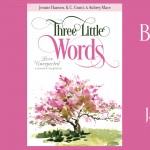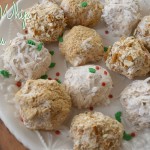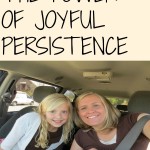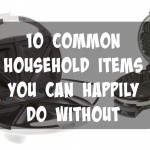One day I will have a garden again. Until then I am grateful for wonderful guest post to prepare me for that day! Today Aurora McCausland is teaching us all about the most nutritious things to put in your compost.
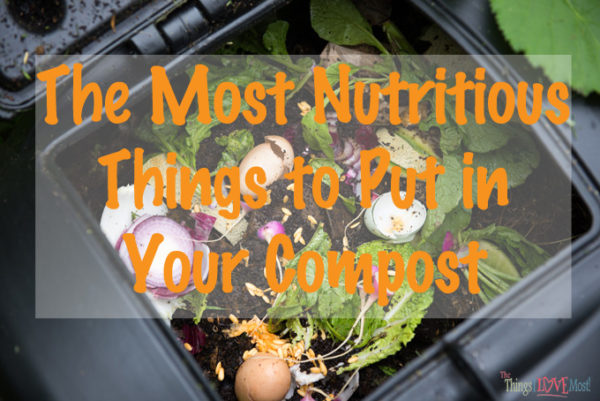
The Most Nutritious Things to Put in Your Compost
By Aurora McCausland
A lot of people don’t really think about the things they put in their bin. Things that could easily be recycled or put to a better purpose just get thrown in a plastic bag and taken to a landfill. You obviously can’t reuse or recycle every single thing that you go to throw out, but you can definitely repurpose a few things. Most people automatically assume the only way to do this is through recycling, which is important and valuable. But another important way you can reuse your waste is through composting!
What is composting?
Composting is the act of taking food waste and using it to enrich your soil. These food products will decompose when done correctly, and not only makes your garden healthier and more nutritious, but also is great for the environment. Here are a few items, by the way. It’s also much easier than you think. Instead of putting your food waste into your bin with the rest of the trash, put it in a separate bin, and add it to your compost when you take out your trash and recycling.
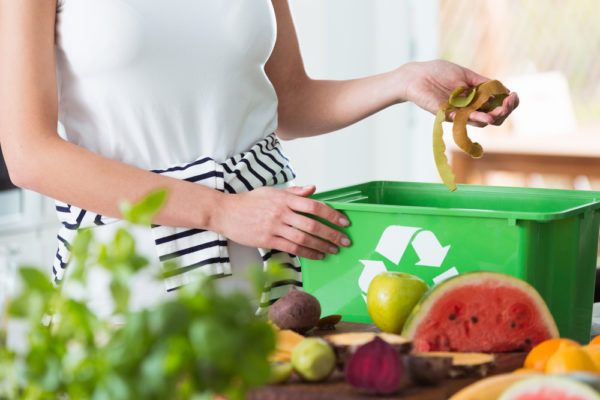
So, what can I compost?
The list of things that you can compost is almost endless. You want a combination of both brown and green items in your compost. Here are a few items you’re probably throwing out that would be perfect for your compost pile!
- Leaves
- Grass clippings
- Manure
- Old herbs and spices
- Plant clippings and trimmings (like brush and shrubs)
- Non-animal food scraps like: fruits, vegetables, peelings, bread, coffee grounds, tea leaves and tea bags, and egg shells (only the shells!)
- Old wine
- Dryer lint
- Dry cat or dog food (only dry, never wet food)
- Pine cones and needles
- Toothpicks and wine corks
- Nut shells
- Twigs
- Hair
- Shredded newspaper and other non-glossy paper (always shredded)
- Dry, old pasta
- Corn cobs
- Used clothes and towels that are made from 100% natural fabrics, like cotton, linen, silk, wool, and bamboo
- Cardboard, paper towel rolls, and egg cartons
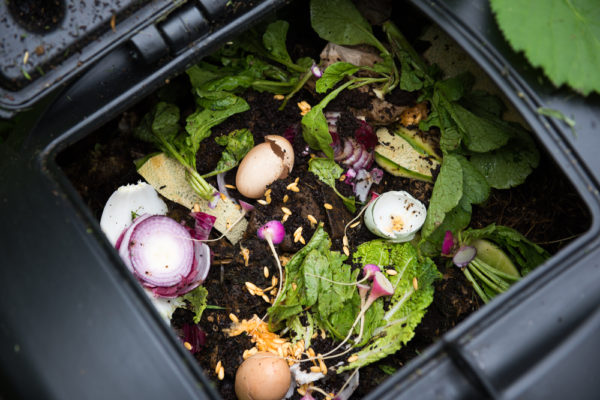
Can I compost anything?
It can seem like composting is a great way to get rid of the rest of your trash that isn’t recyclable. But there are a few things you should NOT compost. Some of them seem like a no-brainer, but they all need to be mentioned!
- Pet feces (or anytype of feces, aside from manure
- Animal products (like bones, meat, milk, butter, etc)
- Big branches or long twigs
- Raspberry and blackberry brambles
- Colored paper
- Coal ash
- Diseased plants
- Synthetic chemicals
- Inorganic material, like aluminum foil, glass, plastic, and metals
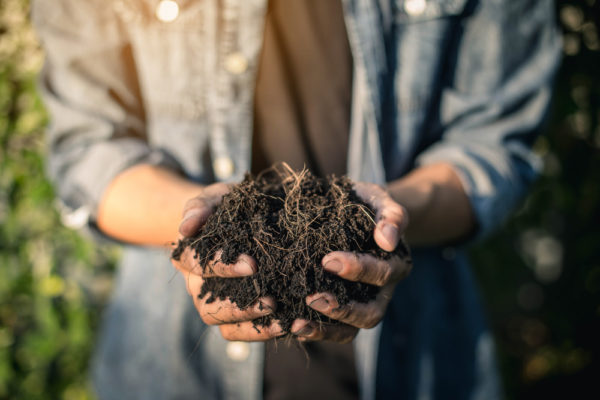
Compost starter
If you’re not new to composting, you’ll know that just dumping all of your compost material in a pile by your garden can work, but it’s not the ideal composting situation. There are a few different things that you can, and should, do to improve the quality of your compost! You can choose to compost in a pile, or you can purchase a composter or composting bin, that will help you keep your compost mixed and at an ideal temperature. Another great thing you can do, whether your compost is in a bin or a pile, is to add a compost starter. These are also known as activators. These provide significant amounts of nitrogen to the mix, which will boost the decomposition of your compost. Things like alfalfa meal, cottonseed meal, blood meal, or finished manure are all great compost activators and will get your compost going faster!
Heating things up
Heat is an important part of composting! Your compost will decompose best between 120 and 140 degrees, which can be why a compost bin is helpful! You can also make sure that your compost pile or bin has a lot of direct sunlight, and that you are turning or stirring your compost on a consistent basis to get it all decomposing at a consistent rate.
